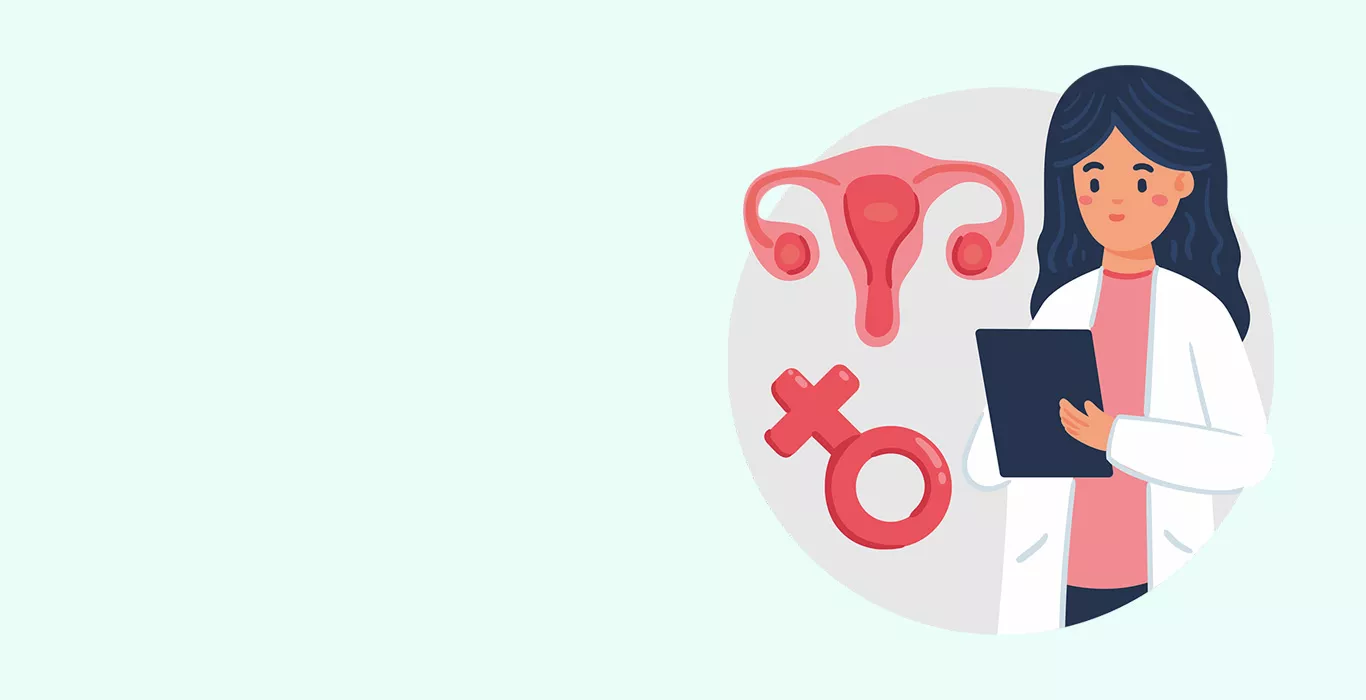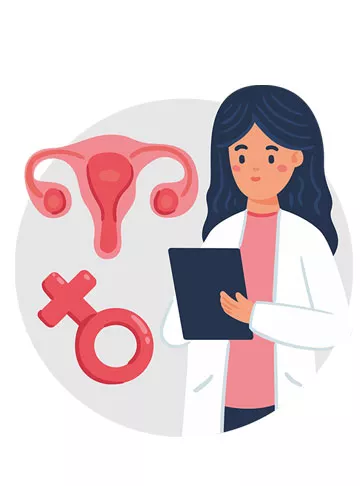What is Anovulation?
Anovulation, as the term suggests, refers to the absence or failure of ovulation in a woman's menstrual cycle. Ovulation is a crucial part of the menstrual cycle where the ovaries release an egg, which is essential for fertilisation and subsequent pregnancy. When anovulation occurs, this critical process is disrupted, impacting fertility and the regularity of menstrual periods.
Who can get Anovulation?
Anovulation can affect women of reproductive age, spanning from adolescence to menopause. It is particularly relevant for women trying to conceive, as anovulation significantly reduces the chances of getting pregnant.
What are the Types of Anovulation?
There are two main types of anovulation:
1.Chronic Anovulation: This type involves an ongoing lack of ovulation, which can be due to various underlying health conditions or hormonal imbalances.
2.Occasional Anovulation: Occasional anovulation refers to sporadic instances where ovulation is missed in an otherwise regular menstrual cycle. This could be due to stress, illness, or other temporary factors.
What are the Causes of Anovulation?
Several factors can contribute to anovulation, including:
- Polycystic Ovary Syndrome (PCOS) : A common hormonal disorder affecting women of reproductive age, PCOS often leads to anovulation due to imbalances in reproductive hormones.
- Hypothalamic Dysfunction: Disorders affecting the hypothalamus, a region of the brain that regulates hormones, can disrupt ovulation.
- Thyroid Disorders: Abnormalities in thyroid function can affect ovulation and menstrual regularity.
- Hyperprolactinemia: Elevated levels of the hormone prolactin can interfere with the ovulation process.
- Premature Ovarian Failure: The ovaries stop functioning before the age of 40, resulting in anovulation and early menopause.
- Excessive Exercise or Weight Loss: Extreme physical activity or significant weight loss can disrupt hormonal balance, leading to anovulation.
What are the Symptoms of Anovulation?
Symptoms of anovulation may include irregular menstrual cycles, absent or infrequent periods, or changes in menstrual flow. Women may also experience signs of hormonal imbalances, such as excessive hair growth, acne, or weight gain.
How does Anovulation affect Female Fertility?
Anovulation disrupts the menstrual cycle by preventing the regular release of eggs from the ovaries. This condition significantly affects female fertility, as without ovulation, there are no eggs available for fertilisation. This may manifest as irregular or absent menstrual periods.
How is Anovulation Diagnosed?
Diagnosing anovulation typically involves a comprehensive evaluation, including:
- Medical History and Physical Examination: A detailed history of menstrual cycles, health, and lifestyle is crucial. Physical exams may identify signs of hormonal imbalances.
- Hormonal Testing: Blood tests to measure hormone levels, such as luteinizing hormone (LH), follicle-stimulating hormone (FSH), prolactin, thyroid hormones, and testosterone, can provide valuable insights.
- Ultrasound: Transvaginal ultrasound can help visualise the ovaries and assess follicle development, aiding in the diagnosis.
How is Anovulation Treated?
Treatment for anovulation aims to restore ovulation and menstrual regularity, often depending on the underlying cause:
- Lifestyle Changes: Managing weight, exercising in moderation, and reducing stress can help regulate menstrual cycles.
- Medications: Hormonal medications, such as clomiphene citrate or letrozole, may be prescribed to induce ovulation.
- Fertility Treatments: In Vitro Fertilisation (IVF) or intrauterine insemination (IUI) can be considered for those struggling to conceive due to anovulation.
- Surgery: In some cases, surgical intervention may be necessary to address structural issues affecting ovulation.
Conclusion
Anovulation is a significant concern for women of reproductive age, impacting both menstrual regularity and fertility. Understanding the causes, symptoms, diagnosis, and treatment options is crucial in managing this condition effectively. Seeking medical advice and appropriate treatment can greatly improve a woman's chances of achieving a regular menstrual cycle and successful conception.
Pregnancy Calculator Tools for Confident and Stress-Free Pregnancy Planning
Get quick understanding of your fertility cycle and accordingly make a schedule to track it















